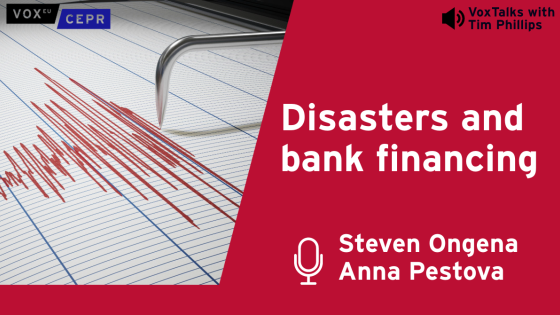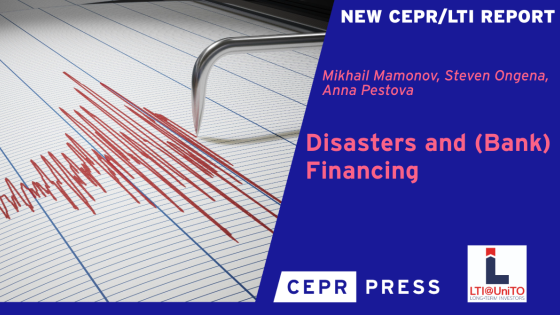Editors’ note: This column is composed of excerpts from the briefing paper “What are the wider supervisory implications of the Wirecard case?”, commissioned by the European Parliament’s Committee on Economic and Monetary Affairs.
Scandals such as Wirecard can destroy investor trust in capital markets working fairly and with integrity, which in turn creates negative spillover effects. Scandals can make it harder for other, non-fraudulent firms to raise capital as investors raise the risk premium or choose to no longer participate in the market (e.g. Aggarwal and Wu 2006, Kyle and Viswanathan 2008, Giannetti and Wang 2016, Gurun et al. 2018). It is for this reason that fraud deserves attention. In essence, trust in the capital market is a (valuable) public good. Among other things, it requires assurance that corporate insiders do not embezzle investors’ money (e.g. Shleifer and Wolfenzon 2002).
The Wirecard case has revealed major weaknesses in market and institutional oversight, especially with respect to investor protection and market integrity. It shows that when serious allegations and concerns arise, especially when they come from credible sources (such as a reputable newspaper), an effective capital market supervisor must both be willing and capable to act. Moreover, the first lines of defence against fraud and manipulation are companies’ internal controls, their supervisory boards and external audits, along with transparency vis-à-vis the public and market participants to facilitate market discipline. All these elements of market and institutional oversight have failed in one way or another in the Wirecard case. Thus, the lessons of the Wirecard case go beyond reforms to current supervisory system. The scandal uncovered weaknesses in the oversight system more generally, demonstrating the need for broader reforms in Germany and in Europe at large.
We make eight suggestions on how to improve the current market and institutional oversight for publicly listed firms. These suggestions represent in our opinion the wider implications of the Wirecard case. Taken together, the suggestions are meant to strengthen the oversight architecture in Europe, without unduly burdening markets and firms. The goal should be to increase the attractiveness of Europe’s capital market for domestic and international investors and issuers.
Suggestion 1 Information flow: whistleblowing
To start investigations in a timely manner, early providers of information (whistleblowers) must be heard by the relevant parties and be taken seriously. We recommend developing a supervisory strategy allowing for an effective screening of the many voices raised and encouraging whistleblowing from within or outside publicly listed firm. Such a strategy may include substantial financial incentives for whistleblowers.
Suggestion 2 Information flow: short selling
A short sale ban is an asymmetric intervention that prevents critical information to be reflected in price. As prices are also important signals to market participants, management, and supervisors, having such information in price is important. Therefore, we recommend making the conditions under which supervisors may enact short sale prohibitions significantly more restrictive.
Suggestion 3 External audits
We suggest a reform of external audits to strengthen auditor accountability. It is not that Wirecard is different or a special case, but that there is a common refrain to accounting scandals. Therefore, the law, not just professional standards, should unmistakably state that auditors’ professional scepticism and reasonable checks to uncover accounting manipulations and accounting fraud are an integral part of an external audit. The market supervisor and the audit oversight body also need to spell out their expectations for auditors that certify financial statements as providing a true and fair view. To strengthen auditor incentives as well as penalties for weak audits, auditor liability should be raised considerably. Finally, we recommend reviewing the effectiveness of existing public audit oversight bodies. At a minimum, these bodies should publicly disclose summary metrics about their inspection findings for individual audit firms, as this would provide valuable information about auditor quality to clients and investors.
Suggestion 4 Internal controls and supervisory board oversight
The Wirecard experience suggests strengthening companies’ internal controls and the oversight role of supervisory boards. At a minimum, the law should require that publicly listed firms have an appropriate and effective internal control system. External auditing of this control system should be considered. A mandate would reinforce our Suggestion 3 as it would clarify the role of auditors in detecting accounting fraud. Supervisory boards need access to critical information independent from management. Therefore, the head of the internal control function should report to the supervisory board (as external auditors already do). To strengthen supervisory board oversight of external audits, publicly listed companies should be required to have a dedicated audit committee. The chair of this committee needs to be independent and a financial expert. In addition, the majority of the audit committee members need to be independent.
Suggestion 5 Enforcement of financial reporting
The legal framework for enforcement is shaped by EU law but includes German specificities. While general market oversight is entrusted to the Federal Financial Supervisory Authority (BaFin), the Wirecard case shows that its investigative powers are too limited as far as financial reporting oversight is concerned. Additionally, a Germany-specific two-step enforcement structure has made the system prone to latency and created unclear responsibilities and accountability in cases of accounting fraud. We suggest reforming the two-step enforcement procedure, making BaFin the only competent authority. BaFin can enlist the help of bodies like the Financial Reporting Enforcement Panel (FREP) for the enforcement of financial reporting, if they wish so, but the powers and accountability remain entirely with BaFin. As to the European framework, we suggest strengthening the mandatory competencies granted to supervisory authorities under the Transparency Directive. They should have investigative and enforcement powers modelled on the strictest standards available under Market Abuse Regulation
Suggestion 6 Overarching market oversight mandate
More generally, the Wirecard case shows that BaFin, as the responsible agency, did not or could not live up to its overarching mandate to protect investors and market integrity. Along with strengthening its powers, we propose to clearly establish the supervisory agency’s accountability for fulfilling this overarching oversight mandate in substance. This accountability requires an appropriate level of institutional independence as well as sufficient resources to fulfil its tasks.
Suggestion 7 Market oversight agency
The Wirecard experience offers lessons beyond the failure of internal controls, auditors and the market supervisor. We read it also as an illustration of a mismatch between national Member State’s historically grown institutions (and cultures) and the introduction of a European regime. Reaping the benefits of a truly unified European CMU will require addressing such mismatches. We propose to create a single, responsible market oversight institution at the European level, which may be called the European Single Capital Market Supervisor (ESCMS). Such an institution would address ripple effects to other countries within the same European capital market that scandals like Wirecard create. In addition, it would help to overcome regulatory fragmentation, conflicts of interest due to national competition in the markets for goods and services as well as regulatory arbitrage and capture.
Suggestion 8 European market oversight
A Europe-wide market oversight system will require the expertise of national markets, with their idiosyncrasies in corporate law, insolvency law and more. We propose to build the European oversight architecture with the existing national agencies as branches of an integrated European supervisory network. The ESCMS serves as the apex layer in the network, to which all national agencies are reporting. A hub-and-spoke architecture of this type will also introduce an element of institutional independence into national agencies.
References
Aggarwal, R and G Wu (2006), “Stock market manipulations”, The Journal of Business 79(4): 1915-1953.
Giannetti, M and T Wang (2016), “Corporate scandals and household stock market participation”, Journal of Finance 71(6): 2591-2636.
Gurun, U G, N Stoffman and S E Yonker (2018), “Trust busting: the effect of fraud on investor behaviour”, Review of Financial Studies 31(4): 1341-1376.
Kyle, A and S Viswanathan (2008), “How to define illegal price manipulation”, American Economic Review 98(2): 274-79.
Shleifer, A and D Wolfenzon (2002), “Investor protection and equity markets”, Journal of Financial Economics 66(1): 3-27.







